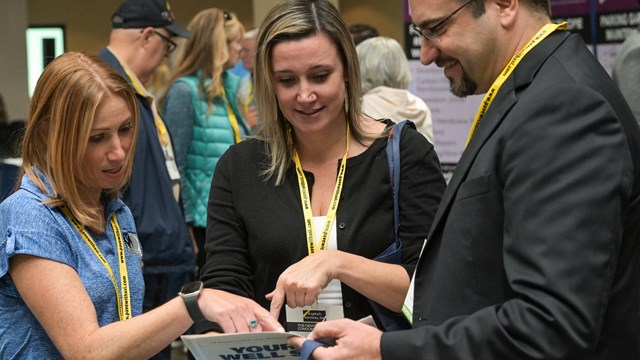
It takes a small army of professionals—everyone from on-site handymen to licensed professional tradespeople and engineers—to maintain multifamily buildings, both large and small. The question is, who does what, and when? Everyone likes to save time and money, but obviously your super shouldn’t be the one to replace the roof. On the other hand, it’s silly to bring in an expensive licensed master plumber to repair a leaky faucet. In between those extremities lies a huge gray area where the best choices for maintaining and repairing your building may not always be evident.
Which Way to Go
Unfortunately, when determining whether a given repair or maintenance task can be handled effectively (and safely) by in-house staff or requires outside professional help, the reality is that there’s not a third level of qualified personnel between those poles. The decision to outsource maintenance is usually one of degrees, and is often dictated by whether local ordinances require specific licensing for specific jobs.
“A qualified super or building engineer and outside contractors each have their specific roles when it comes to maintenance tasks and projects in a building,” says Jude Odenthal, a community manager with FirstService Residential in New Jersey. “The division of tasks often depends on factors such as complexity, specialized knowledge, legal requirements, safety concerns, and practicality. Building engineers are responsible for daily or routine maintenance tasks. This includes things like changing light bulbs, replacing HVAC filters, checking and maintaining common area equipment, and addressing minor plumbing issues. Further, they are trained to handle certain emergency situations like power outages, minor flooding, and other immediate building-related crises. They also perform general upkeep tasks such as painting, basic carpentry, and maintaining the overall appearance of common areas.”
Odenthal explains further that while “a qualified building engineer can handle routine maintenance and basic repairs, outside contractors and professionals are better equipped to manage more specialized tasks, major renovations, code compliance, and safety-related work. The decision on whether to engage in-house staff or contractors depends on factors such as complexity, legal requirements, expertise, and cost-effectiveness.”
“We depend on our supers and handymen to do scheduled preventative maintenance,” says Daniel Wollman, CEO of Gumley Haft, a management firm based in New York City. “The house pumps, for instance, should be checked to make sure they’re working every day. The bearings must be greased, and there should be a sheet next to the pumps on which the maintenance staff member notes their name, the date, and the time the work was done.
“For other systems—the elevator, say—you have a service contract,” Wollman continues. “Their people come a couple of times a month for minor tuning. They also sign off on a sheet. We have this very simple system with all safety-related things like fire systems, central air, etc., that are monitored by third parties that our staff is not trained to maintain. Everyone, whether staff or outsourced services, must sign in and sign off to verify that the necessary work was completed.”
When a License is Necessary
In many cases, local rules, regulations, and ordinances will govern who does (and doesn’t do) what when it comes to maintenance. When local rules call for licensed professionals, it’s to the benefit of management and ownership to follow those rules, lest major problems arise later. That problem might not be a deadly collapse, such as what happened to the condo in Surfside, Florida in 2021, but even a plumbing problem improperly repaired by a staff member rather than a licensed plumber could result in an extensive, damaging leak, fines from the local municipality, and potential problems with the community’s insurer. Any one of those outcomes could cost far more to correct than simply hiring a good plumber from the start.
“The decision whether to use in-house staff or outsource a repair is a rather simple thing,” says Scott Wolf, CEO of BRIGS, a real estate management firm located in Boston, Massachusetts. “If a license is required by local ordinance, the work is done by an outside vendor. An in-house, on-site super, facility person, or maintenance guy can do light electrical or plumbing, unclog a drain or change a bulb, but otherwise we bring in an outside company. Our in-house project managers will assist and monitor large projects done by outsourced professionals.”
As an example, Wolf explains that “to do any plumbing or electric work you must have a license—you cannot pull a building permit without one,” though “truthfully,” he says, “I have guys in-house who can do these things—install a light fixture or a water heater—but legally they need a license, even for a toilet replacement.” In Massachusetts, licensing is dictated by the state and is for specific trades.
“In Florida,” says Rob Hastings, regional director, East Coast Services for Associa and based in Florida, “building engineers are generally restricted from performing plumbing and electrical work, as well as work related to boilers and private unit installations. These tasks typically require industry-specific licenses or certifications from government agencies to ensure safety and compliance with local, state, or federal regulations. It’s important for building engineers to be aware of their limitations and to collaborate with licensed professionals when such tasks are required. Keep in mind that laws and regulations can change, so it’s recommended to consult the most up-to-date sources or legal experts for accurate information.”
But for the Residents…
Boards and managers may be concerned with local laws and licenses, but for residents, the question is simpler: can I get the super to fix this? Most co-op shareholders and condo unit owners don’t want to pay for a licensed plumber to tighten a washer on a leaky kitchen sink. It’s at least $500 for the plumber to walk through the door, then maybe another five minutes to fix the washer. What’s an owner to do?
“In a full-service luxury rental building,” says Wollman, “the expectation on the part of the resident is that when they have a small problem, the super or handyperson will come and try to repair it. In a co-op or condo, on the other hand, residents likely have different types of fixtures—some very expensive—which they installed and own, and staff isn’t going to mess with that stuff, because it’s often complicated, and the replacement parts may not be readily available.
“To be sure, asking building staff to do personal work happens all the time, and is normal in the course of building operations in New York City,” Wollman adds, noting that it can sometimes be an issue if building staff are doing personal jobs for individual residents during hours when they’re supposed to be working for the building at large, and are getting ‘tipped’ for doing that side work on building time. “That can become an issue for some boards,” he says. “Very few buildings have a chargeback system.”
According to Odenthal, “Compensation for additional work performed by a building super beyond their usual duties is a complex topic that depends on various factors, including the nature of the work, the terms of their employment, local labor laws, and the specific arrangements made between the super and the building owner or management. It’s important to ensure that any compensation arrangements comply with legal and ethical standards. Failing to provide fair compensation for additional work could potentially lead to legal disputes or grievances. Ultimately, it’s advisable to have clear communication, well-defined job descriptions, and agreements in place. Consulting legal professionals or labor experts can help ensure that compensation practices align with local labor laws and regulations.”
Union Rules, State Requirements, & Insurance
Union rules and state requirements differ by location and jurisdiction. For instance, in Massachusetts, Wolf points out, they rarely interface with unions, but state requirements for licensed tradesmen are very specific. “Licensing is dictated by the state and is specific to trades,” he says. Insurance is another consideration. “We never allow anyone who doesn’t have insurance to do work at the building. Any vendor we use must prove they have valid insurance that’s up to date, or they can’t work on the property.”
In Florida, says Hastings, “union rules and state building requirements are generally separate matters. Union rules primarily pertain to labor and employment practices, while state building requirements are related to construction and safety standards. For comprehensive building repairs in Florida, we typically adhere to local building codes and regulations. This may require obtaining permits from the local regulatory agency. The specific documentation required can vary by county, depending on the extent of the repairs and local regulations.”
Wollman continues, “If [a task] is in the normal course of business, the employee is allowed and should be able to do repairs. If it fails and causes a leak, would the building be insured? As long as he wasn’t negligent, it should be fine, but check with your insurance agent.”
In the end, boards and managers must be careful with their choices about hiring out a job or assigning it in-house, balancing additional costs with the possible problems of assigning a job to the wrong person. It could cost more than the right approach.
A J Sidransky is a staff writer/reporter for New England Condominium and a published novelist. He may be reached at alan@yrinc.com.






Leave a Comment